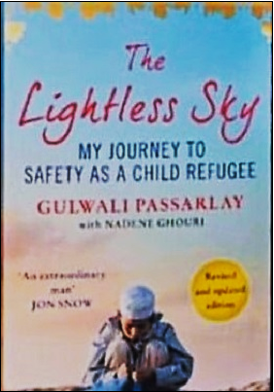
Despite the Government's policy of Every Child Matters which seeks to ensure the well-being of all children, the Government is itself responsible for abusing one group of children: those held in UK immigration centres.
A report published in
Child Abuse and Neglect of 24 children between three months and 17 years old detained in Yarl's Wood Immigration Centre shows that 73% had developed clinically significant emotional and behavioural problems since being detained. None had previously had any such problems. According to the Guardian's review of the findings:
- Eight children had lost weight since being detained,including a two-year old and a nine-year old who had both lost 10% of their body weight.
- Three children had regressed and refused to feed themselves or would take only milk.
- Most complained of recent health problems including abdominal pain, headache, coughing and vomiting. Two required hospital care.
- Ten out of 11 children seen by a psychologist had begun to experience sleep problems including nightmares and difficulty falling or remaining asleep
- Four children had bed-wetting, although they had previously been dry for a number of years and two started daytime soiling and wetting, indicators of severe stress.
- Four children had regressed language skills, including one child who had become selectively mute.
- All nine parents interviewed reported severe psychological distress, and six out of nine had contemplated suicide. Two were on suicide watch.
In rather deadpan fashion the report concludes that its findings support Australian research which suggested that 'detention is not in the best interests of the child'.
Most importantly the parents and children did not have access to the full range of assessment, support and treatment that they required and which they would have had access to if the children were attending a school.
Brent has one of the highest populations of refugees and asylum seekers and as a Brent teacher I gained valuable knowledge in educating and caring for children who had often gone through the most horrendous experiences. Providing a safe and supportive place for them to talk and work through their experience, as well as access to other agencies, enabled them to benefit from school and because they were the most fluent English speakers in the family, they often acted as interpreters in the family's dealings with the authorities.
I believe that one of the reasons that detention is favoured by this Government, and previous ones, is that schools as institutions have become highly effective at mounting campaigns against the deportation of pupils as well as supporting their needs. Schools are legally required to support racial equality and often have policies committed to social justice. Refugee and asylum seeker's children establish friendships in the school and their families begin to make links with the local community. These friendships and connections challenge negative stereotypes as refugees and asylum seekers become real people, with names, characters, emotions and histories and earn the respect of the host community.
An exemplary approach to providing support for refugee children is provided in Brent by Salusbury World, a charity operating from Salusbury Primary School in Queen's Park. A BBC report on one family's experience can be seen here: Child Abuse by UK Border Agency



